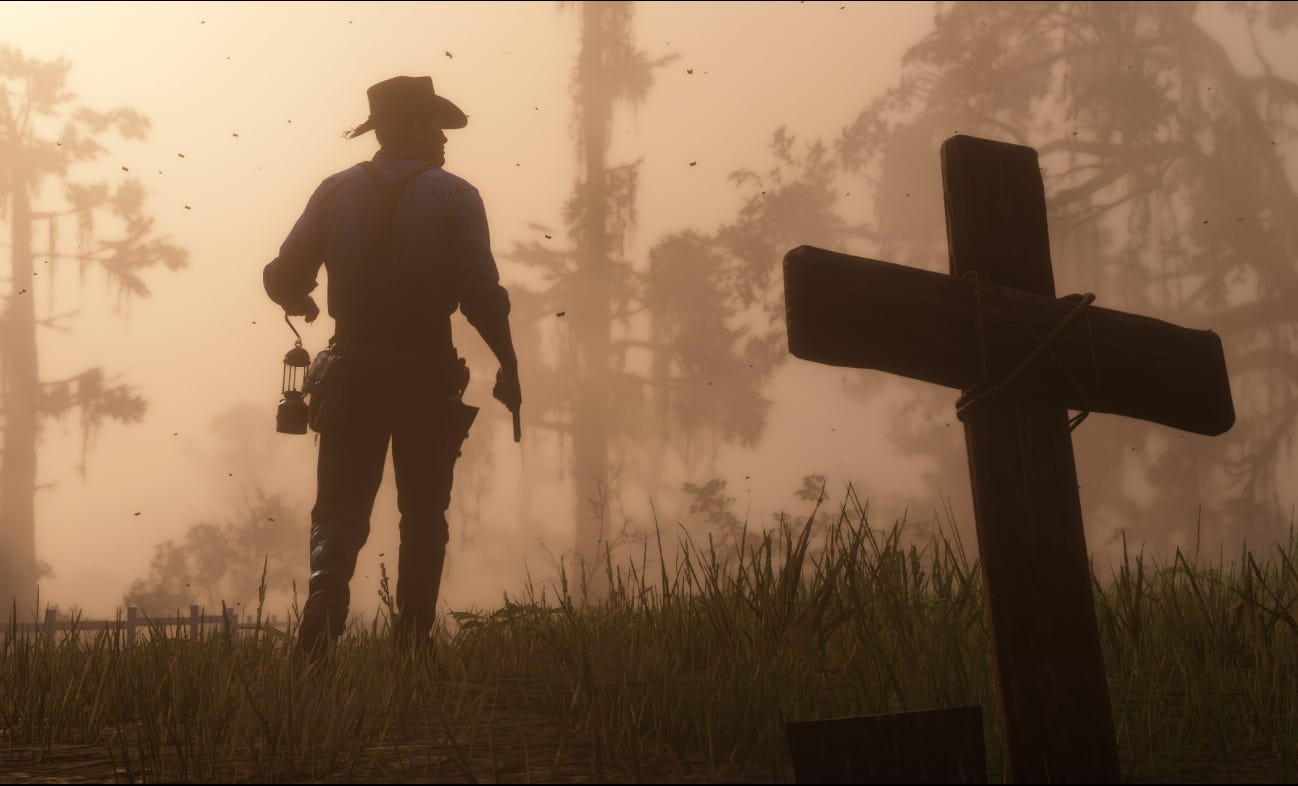Does "Red Dead Redemption 2" have a sexism problem?
Originally published November 18, 2018 on adelechapline.com
Set as a prequel to the 2010 Red Dead Redemption, the much-anticipated Rockstar game, Red Dead Redemption 2 (RDR2), launched in October 2018 and has received both widespread acclaim and social criticism, particularly in regards to its portrayal of women.
The story, mechanics, and artwork of RDR2 are cleverly crafted and immersive, allowing players to suspend their disbelief and truly submerge into the role of Arthur Morgan, a high-level member of Dutch Van der Linde’s gang. While the player gets to choose the moral path of Arthur, the game allows for insight and interactions that lead the player into thinking “what would Arthur do?” Rockstar shows off their narrative abilities exceptionally well, far beyond anything they accomplished in Red Dead Redemption. Even long, drawn-out quest lines reveal fascinating and rewarding endings for loot and lore.
The morality system in Red Dead Redemption 2 is ranked by earning “honor” and “dishonor” throughout the different encounters. If Arthur walks past someone injured with a snake bite and decides to help, he receives “honor.” Alternatively, ignoring the injured person can lead to their death, and you receive “dishonor.” In another encounter, Arthur meets a man evicted by the bank from his home, who asks him for help in retrieving the man’s ledger, watch, and gun. Arthur goes on to help, only to learn that this man is actually a slave trader. In this case, going after the slave trader earns you “honor” instead of “dishonor.” The morality system is an incredibly unique feature of the game, as certain quests, outfits, and endings will open or close depending on your honor level.
A different kind of morality system emerges on the player end, however, with so many choices left up to the individual players themselves. The story takes place in 1899, as the wild west’s death rattle begins and the law cracks down on outlaw activity. This is also the era when women are fighting for civil rights, and there are suffragettes within the game alongside other female characters. Rockstar has been receiving a lot of attention for its depiction of female characters and for the allowance of violence towards them.
Catholic teaching stresses over and over, from the bible to the Catechism to encyclicals, that gender violence is a sin. Pope Francis, in Amoris Laetitia, says “Unacceptable customs [in society] still need to be eliminated. I think particularly of the shameful ill-treatment to which women are sometimes subjected, domestic violence and various forms of enslavement which, rather than a show of masculine power, are craven acts of cowardice.” Video games do have an impact on our society and culture, and the portrayal of women is an important aspect to examine. Criticisms of RDR2 arose after a rather distressing competition emerged on YouTube of players killing suffragettes in various ways, from setting them on fire to feeding them to alligators.
Free will is an integral part of the game. In a gamer community that has proven to be hostile towards women, there will always be those players who choose to punch the suffragette in the face, and throw her down a mining shaft instead of actually protecting them according to the mission directives. Free-will choices in video games serve to expose continued issues in our real-life culture.
The emerging behavior from RDR2 video clips is a sad portrayal of the gaming community. Conscientious players must acknowledge these moral pitfalls and work against them to create an online culture that is welcoming toward real-world female gamers.





